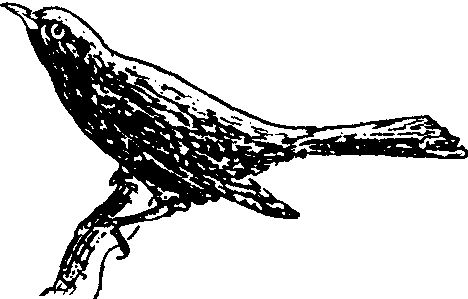乌鸫Turdus merula
俗称“百舌”。雀形目,鹟科。体型与“八哥”近似,体羽乌黑色,但嘴为橙黄色,额前无羽簇,翅和尾羽上无白斑。喜三五只小群在田野、村落、庭园处活动。常在地面奔走,而不会跳跃。主要在地面啄食各种昆虫和蚯蚓,也兼食植物种子、果实。雄鸟好斗,尤其是在早春繁殖期间,相互扑击争雌。雄鸟鸣声响亮,能模仿其它鸟鸣叫声,故有“百舌”的俗称。为我国南方常见的一种笼鸟。饲养容易,一般可用八哥笼饲养雏鸟或成鸟。饲料以喂鹩哥粉和蛋米为主,可适当添加点皮虫和蚯蚓。由于食量较大,排粪多,应随时清刷鸟笼和鸟的足趾。天气暖和的季节,每天可进行1次水浴。

乌鸫
乌鸫
雀形目鹟科。体重110克,体长250毫米左右。上体、两翅、尾黑色。下体黑褐色;颏缀棕色羽缘。雌鸟背部淡;颏、喉浅栗色,缀以黑褐色纵纹;下体暗锈色。见于天山及塔里木盆地西部及东疆盆地,多栖于平原草地。食物以昆虫为主,兼食少量植物。